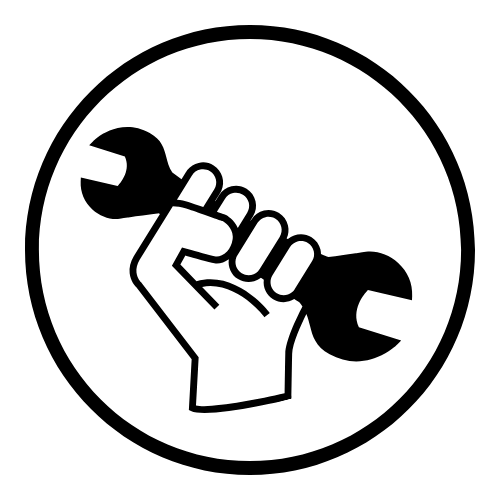How Africa can stop exporting raw materials and start producing finished goods (e.g. cocoa to chocolate, bauxite to aluminum).
For Africa to stop exporting raw materials and begin producing finished goods (e.g., cocoa to chocolate, bauxite to aluminum), it needs a strategic, long-term shift involving industrial development, local value addition, infrastructure investment, policy reform, and regional collaboration.
Here's a breakdown of how this transformation can happen, with actionable steps:
1. Build Local Processing & Manufacturing Industries
Actions:
Invest in processing plants: Governments and private sectors should invest in cocoa grinders, aluminum smelters, textile mills, etc.
Create industrial zones: Establish agro-processing and mineral refining hubs near resource sites.
Public-private partnerships: Encourage foreign and local investors to co-develop factories with skills and technology transfer.
Example:
Ghana and Côte d’Ivoire can move from just exporting cocoa beans to making premium chocolate brands for African and global markets.
2. Develop Skilled Labor & Technical Capacity
Actions:
Vocational & technical training: Set up institutions focused on agro-processing, engineering, packaging, and quality control.
University-industry collaboration: Encourage R&D in local product innovation.
Incentivize diaspora returnees: Attract professionals with expertise in manufacturing and business.
Example:
Train youth in cocoa fermentation and chocolate production, aluminum fabrication, or textile design, targeting local industry needs.
3. Improve Infrastructure & Energy Access
Actions:
Stable electricity: Invest in solar, hydro, and gas for industrial power.
Efficient transport systems: Build better roads, ports, and rail to connect raw materials to factories and markets.
Digital infrastructure: Enable smart manufacturing, supply chain systems, and e-commerce.
4. Promote Local & Regional Markets
Actions:
Support local consumption: Campaigns to "Buy African-Made" and create national product pride.
Utilize AfCFTA (African Continental Free Trade Area): Trade finished goods easily across African borders with reduced tariffs.
Standardization & certification: Ensure local products meet quality standards for regional and international markets.
Example:
Instead of importing chocolate, supermarkets across Africa stock "Made in Africa" brands using local cocoa.
5. Reform Policies & Incentives
Actions:
Ban or heavily tax raw exports: With gradual enforcement to protect current exporters.
Tax holidays for manufacturers: Reduce costs for investors building local industries.
Subsidies for local producers: Support SMEs in processing, packaging, and logistics.
Example:
Ghana could impose a gradual export tax on raw cocoa and give tax breaks to chocolate makers within its borders.
6. Access to Finance for Local Entrepreneurs
Actions:
Development banks & microfinance: Offer low-interest loans for machinery, raw materials, and working capital.
Investment funds for value chains: Governments or regional blocs can co-fund startups in agro- and mineral-processing.
7. Strategic Branding & Exporting
Actions:
Create global African brands: Position African chocolates, garments, aluminum, ceramics, etc., as premium, ethical, and sustainable.
Use diaspora and e-commerce: Reach global markets through platforms like Afriprime, Corkroo, or Shopify.
Export finished goods, not just raw commodities.
Priority Sectors for Value Addition:-
Raw Material Finished Product Opportunity
Cocoa .........................................................Chocolate, cocoa butter
Bauxite ..........................................................Aluminum products
Cotton ..........................................................Textiles, garments
Cashew ..........................................................Roasted nuts, oils
Timber ..........................................................Furniture, flooring
Gold .........................................................Jewelry, electronics
Oil & Gas ................................................Petrochemicals, plastics
Conclusion:
Africa must industrialize intelligently – starting with what it already produces. By shifting from raw export to value addition, the continent can create millions of jobs, retain wealth, and gain economic independence. This transformation won't happen overnight, but with coordinated policy, investment, and regional effort, it's entirely achievable.
By Jo Ikeji-Uju
https://afriprime.net/pages/AnythingHow Africa can stop exporting raw materials and start producing finished goods (e.g. cocoa to chocolate, bauxite to aluminum).
For Africa to stop exporting raw materials and begin producing finished goods (e.g., cocoa to chocolate, bauxite to aluminum), it needs a strategic, long-term shift involving industrial development, local value addition, infrastructure investment, policy reform, and regional collaboration.
Here's a breakdown of how this transformation can happen, with actionable steps:
1. Build Local Processing & Manufacturing Industries
Actions:
Invest in processing plants: Governments and private sectors should invest in cocoa grinders, aluminum smelters, textile mills, etc.
Create industrial zones: Establish agro-processing and mineral refining hubs near resource sites.
Public-private partnerships: Encourage foreign and local investors to co-develop factories with skills and technology transfer.
Example:
Ghana and Côte d’Ivoire can move from just exporting cocoa beans to making premium chocolate brands for African and global markets.
2. Develop Skilled Labor & Technical Capacity
Actions:
Vocational & technical training: Set up institutions focused on agro-processing, engineering, packaging, and quality control.
University-industry collaboration: Encourage R&D in local product innovation.
Incentivize diaspora returnees: Attract professionals with expertise in manufacturing and business.
Example:
Train youth in cocoa fermentation and chocolate production, aluminum fabrication, or textile design, targeting local industry needs.
3. Improve Infrastructure & Energy Access
Actions:
Stable electricity: Invest in solar, hydro, and gas for industrial power.
Efficient transport systems: Build better roads, ports, and rail to connect raw materials to factories and markets.
Digital infrastructure: Enable smart manufacturing, supply chain systems, and e-commerce.
4. Promote Local & Regional Markets
Actions:
Support local consumption: Campaigns to "Buy African-Made" and create national product pride.
Utilize AfCFTA (African Continental Free Trade Area): Trade finished goods easily across African borders with reduced tariffs.
Standardization & certification: Ensure local products meet quality standards for regional and international markets.
Example:
Instead of importing chocolate, supermarkets across Africa stock "Made in Africa" brands using local cocoa.
5. Reform Policies & Incentives
Actions:
Ban or heavily tax raw exports: With gradual enforcement to protect current exporters.
Tax holidays for manufacturers: Reduce costs for investors building local industries.
Subsidies for local producers: Support SMEs in processing, packaging, and logistics.
Example:
Ghana could impose a gradual export tax on raw cocoa and give tax breaks to chocolate makers within its borders.
6. Access to Finance for Local Entrepreneurs
Actions:
Development banks & microfinance: Offer low-interest loans for machinery, raw materials, and working capital.
Investment funds for value chains: Governments or regional blocs can co-fund startups in agro- and mineral-processing.
7. Strategic Branding & Exporting
Actions:
Create global African brands: Position African chocolates, garments, aluminum, ceramics, etc., as premium, ethical, and sustainable.
Use diaspora and e-commerce: Reach global markets through platforms like Afriprime, Corkroo, or Shopify.
Export finished goods, not just raw commodities.
Priority Sectors for Value Addition:-
Raw Material Finished Product Opportunity
Cocoa .........................................................Chocolate, cocoa butter
Bauxite ..........................................................Aluminum products
Cotton ..........................................................Textiles, garments
Cashew ..........................................................Roasted nuts, oils
Timber ..........................................................Furniture, flooring
Gold .........................................................Jewelry, electronics
Oil & Gas ................................................Petrochemicals, plastics
Conclusion:
Africa must industrialize intelligently – starting with what it already produces. By shifting from raw export to value addition, the continent can create millions of jobs, retain wealth, and gain economic independence. This transformation won't happen overnight, but with coordinated policy, investment, and regional effort, it's entirely achievable.
By Jo Ikeji-Uju
https://afriprime.net/pages/Anything








